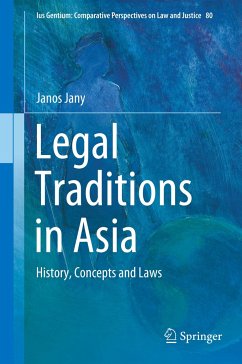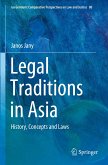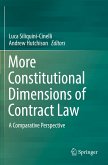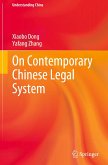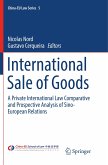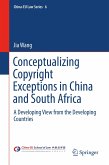This book offers a comparative analysis of traditional Asian legal systems. It combines methods from legal history, legal anthropology, legal philosophy, and substantive law, pursuing a comprehensive approach that offers readers a broad perspective on the topic. The geographic regions covered include the Near East, Middle East, Central Asia, India, China, Japan, and Southeast Asia.
For each region, the book first provides historical and political context. Next, it discusses major milestones in the region's legal history and political institutions, as well as its forms of government. Readers are then presented with fundamental principles and terms needed to understand the legal arguments discussed.
The book begins with the Ancient Near East and important topics such as Jewish law. The next part considers Islamic law, while also exploring modern issues. The third part focuses on Hindu and Buddhist law, while the fourth part covers China and Japan. The book's closingsection examines tribal societies, e.g. Mongols, Pashtuns and Malays.
Topics covered include the interaction of legal systems within a legal circle, inter-systemic interactions, reasons for the failure and success of legal modernization, legal pluralism, and its effects on Asian societies. Family law, law of obligation, criminal law, and procedural law are also explored.
For each region, the book first provides historical and political context. Next, it discusses major milestones in the region's legal history and political institutions, as well as its forms of government. Readers are then presented with fundamental principles and terms needed to understand the legal arguments discussed.
The book begins with the Ancient Near East and important topics such as Jewish law. The next part considers Islamic law, while also exploring modern issues. The third part focuses on Hindu and Buddhist law, while the fourth part covers China and Japan. The book's closingsection examines tribal societies, e.g. Mongols, Pashtuns and Malays.
Topics covered include the interaction of legal systems within a legal circle, inter-systemic interactions, reasons for the failure and success of legal modernization, legal pluralism, and its effects on Asian societies. Family law, law of obligation, criminal law, and procedural law are also explored.
"Jany's dense book is packed with highly interesting details. ... The significance of this book is clear, nonetheless. Not many can write a book like this one, pulling together a daunting amount of information. Professor Jany's ambitious and painstaking work offers readers essential reference materials and a much-needed foundation for linking a great diversity of legal traditions to one another. His book marks a timely and welcome occasion to promote a dialogue among jurists, historians, theologians, philosophers, anthropologists, and anyone else interested in the evolution of laws ... ." (Marie Seong-Hak Kim, Rechtsgeschichte - Legal History Rg, Issue 30, 2022)

